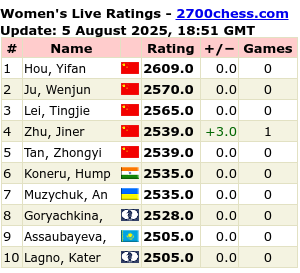
Image: bornagainredneck.blogspot.com
Since I have started teaching in Secondary schools in the UK, it has been interesting to know what is being taught in schools and to compare to what we teach in South Africa. Curriculum-wise, the contents is of course exactly the same when it comes to all subjects, apart from history, as all countries teach the history of their country more intensively for obvious reasons. Colleagues are always interested to know about the country you’re from and you do enjoy the diversity in students/teachers – all from different countries and to get to know the different cultures too. I’ve met teachers from Spain, France, Canada, Ghana, Zimbabwe, Greece, Poland, New Zealand, Australia, Portugal, Nigeria, too many to name! One thing is for sure, teachers are teachers, it doesn’t matter from which country you are, your background, we all share some personal traits. Yesterday, I had the opportunity to chat with a history teacher and I was given a text book and when paging through the book, my eye caught the topic on South Africa – and it was interesting to read through the text, but then when I read the section about slavery, I couldn’t believe the distorted account of the events/history during the 1700’s-1800’s, e.g. one “fact” was that the British abolished slavery (which is the truth), but then the distorted view: it was the cause of the Great Trek. As if the “boers” had wanted to have slaves and decided to trek due to the abolishment of slavery. Ee….e.r… that’s not the cause of the Great Trek in 1838… I would suggest that you read Patrick’s blog if you were taught that distorted fact at school. Also, if you are/were under the impression that we had slaves in SA – after slavery was abolished – then you really do have a distorted view of SA and what really happened there. I would then urge you to make sure you have the facts.
I’ve found Patrick’s blog with a clear explanation of our history. He explains it clearly, in an interesting way. I have really enjoyed reading his entry and I would like you to make an effort and visit his blog-entry. You will find the link at the bottom of this entry. I also have a link to one of my early-entries, which you might want to follow too. I’ve found tons of information and many links which you will enjoy. I think history-textbooks need to be rewritten for Secondary schools in the UK… but, we all know why history always got written the way it is written, don’t we?
C.D. Jewell, author of Liberalstein, says about Born Again Redneck:
“This blog interested me first because of the title. But the quality of Patrick Joubert Conlon’s writing has kept me coming back. His style is not presumptuous or pompous or condescending; it’s plain and simple. Good old American English. Which is funny because Mr. Conlon was born and lived in South Africa for his first twenty one years and after that spent eight years in England before finding his home here in the U. S. His blog provides a rare outsider/insider perspective on the U. S. of A. He’s been linked to by CNN on a couple of occasions and one of his posts was cited by the official Fred08 website. He does a lot of politics but also some lighter fare as well. He frequently posts spectacular photos taken on his Oregon farm.”
A quote from Patrick’s blog… and I do hope that you will follow the link and read the complete entry. All links will open in a new window.
They first introduced a law to force the Khoi and other so-called “free” blacks to work for as little as possible. The Hottentot Code of 1809 required that all Khoi and other free blacks carry passes stating where they lived and who their employers were. Persons without such passes could be forced into employment by white masters.
Parliament in London then established a circuit court to monitor conditions in the western Cape. This court offended many Afrikaner sensibilities by giving equal weight to the evidence of “servants” and “masters,” black and white alike. The British also raised a force of colonial police, including Khoi, to enforce the court’s authority. The British also forbade the use of “Cape Dutch” (which patois eventually developed into the Afrikaans language) in court.
In 1815 a Dutch-speaking Afrikaner farmer who refused to answer a court summons for mistreating a Khoikhoi employee was shot dead while resisting arrest. Relatives and neighbors rose in what became known as the Slachter’s Nek Rebellion, but their resistance was soon crushed, and the British hanged five of the rebels.
Some Afrikaners migrated eastward. These Afrikaners were known as Trekboers (itinerant farmers – “trek” is Afrikaans for “travel” and “boer” means “farmer.”) Then the British stopped the Boers eastward trek by annexing all of the Eastern Cape and establishing their own colony there in 1820. That is when my father’s ancestors, the 1820 Settlers, arrived in South Africa.
Read a clear explanation by Patrick HERE
You can read my blog-entry on the following link:
https://chessaleeinlondon.wordpress.com/2007/09/23/boer-war-art-poetry-and-history/




